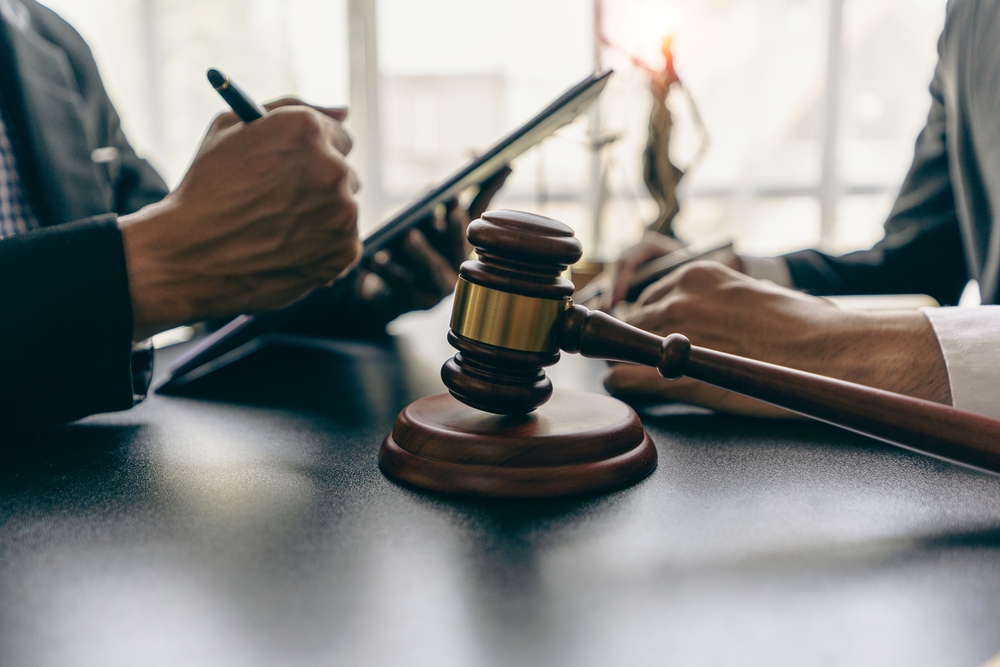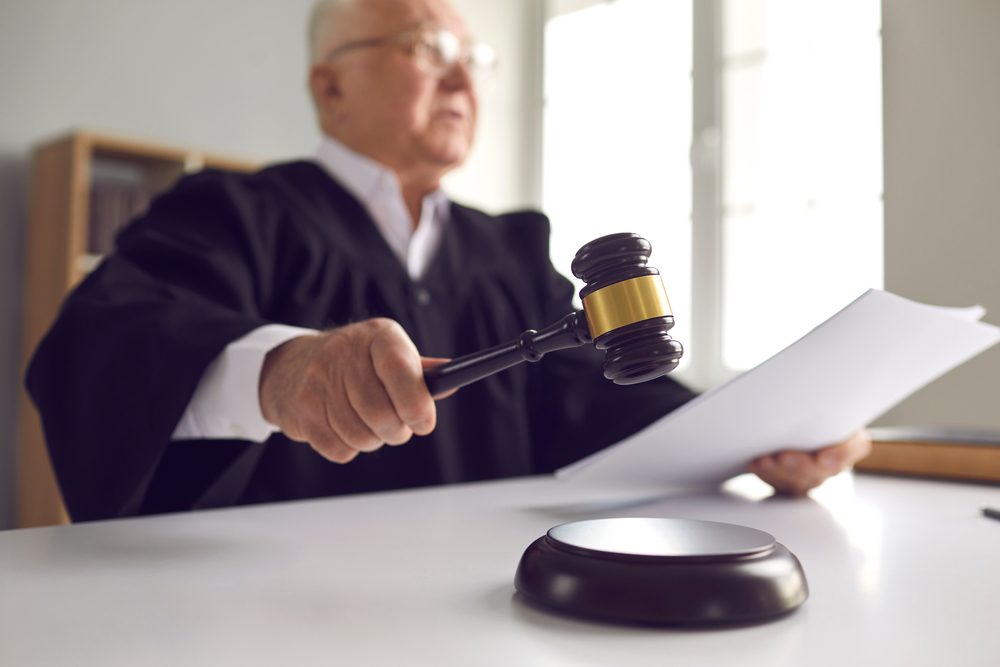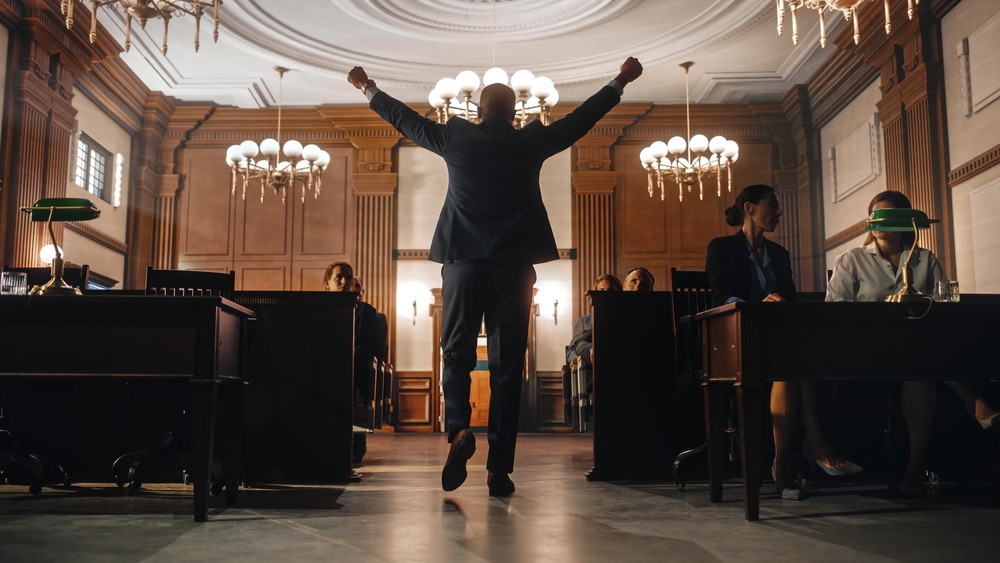Can I Get a Case Dropped Against Me in England? Exploring Your Options
Can I Get a Case Dropped Against Me in England? Exploring Your Options
If you find yourself entangled in a criminal case in England, you may wonder if there is a possibility to have the police drop the charges against you. This article delves into the question of whether you can influence the police to dismiss a case and provides insights into the legal process in England.
While it is essential to consult with a criminal defence solicitor regarding your specific circumstances, understanding the factors involved can help you navigate the situation more effectively. From the burden of proof to the role of the police and the options available, we explore the possibilities and limitations of getting a case dropped in England.
Understanding the Legal Process

To grasp the potential for having a case dropped in England, it is essential to understand the legal process involved in criminal cases. Familiarising yourself with the stages from investigation to prosecution will provide insight into the factors that come into play.
- Investigation: When a crime is reported, the police initiate an investigation to gather evidence and establish whether there are grounds to proceed with a criminal case. They collect witness statements, examine physical evidence, conduct interviews, and explore any other relevant information to build a case against the alleged offender.
- Arrest: If the police find sufficient evidence to suspect your involvement in a crime, they may arrest you. An arrest occurs when the police have reasonable grounds to believe that you have committed an offence. Following an arrest, you may be taken to a police station for questioning and further investigation.
- Charging Decision: After the investigation, the police submit the evidence they have gathered to the Crown Prosecution Service (CPS). The CPS, an independent body, assesses whether there is sufficient evidence to prosecute and whether it is in the public interest to do so. They consider factors such as the seriousness of the offence and the likelihood of securing a conviction.
- Prosecution: If the CPS determines that there is enough evidence and it is in the public interest, they will proceed with the prosecution. The case is then presented before a court, and the prosecution presents its evidence against you. It is crucial to note that the decision to prosecute lies with the CPS, not the police.
- Trial: During the trial, both the prosecution and defence present their arguments and evidence to the court. The burden of proof rests with the prosecution, who must prove your guilt beyond a reasonable doubt. You have the right to present a defence, challenge the prosecution’s case, call witnesses, and cross-examine witnesses presented by the prosecution.
It is important to recognise that the decision to drop a case lies with the prosecution rather than the police. While the police play a vital role in the initial investigation and gathering of evidence, it is the CPS that determines whether the case proceeds based on the evidence provided.
Understanding the legal process helps manage expectations and informs decisions regarding the potential for having a case dropped. Engaging a criminal solicitor early in the process is crucial, as they can navigate the legal landscape, assess the strength of the prosecution’s case, and explore potential avenues for having charges dropped or reduced.
Remember, each case is unique, and legal advice tailored to your specific circumstances is essential. Consulting with a criminal solicitor will provide personalised guidance on the best course of action based on the details of your case.
Burden of Proof and Prosecution’s Discretion

In the context of having a case dropped, it is important to understand two key aspects: the burden of proof and the prosecution’s discretion. These factors play a significant role in determining the likelihood of having charges against you dismissed.
- Burden of Proof: In criminal cases, the burden of proof lies with the prosecution. They are required to prove your guilt beyond a reasonable doubt. This standard is intentionally high to protect the rights of the accused and prevent wrongful convictions. As the defendant, you are not required to prove your innocence; it is the prosecution’s responsibility to prove your guilt.
To have a case dropped, you or your legal representative would need to demonstrate that the evidence against you is insufficient to meet the burden of proof. This typically requires presenting compelling arguments or evidence that raises doubts about your guilt or discredits the prosecution’s case.
- Prosecution’s Discretion: While the police initiate investigations, it is ultimately the Crown Prosecution Service (CPS) that decides whether to proceed with a criminal case. The CPS exercises prosecutorial discretion, considering various factors when making this determination, including:
- Sufficiency of Evidence: The CPS assesses the strength and admissibility of the evidence against you. If they believe the evidence is weak or unlikely to result in a conviction, they may decide not to proceed with the case.
- Public Interest: The CPS considers whether it is in the public interest to prosecute. Factors such as the seriousness of the offence, impact on victims, and any potential harm to the public are taken into account. If pursuing the case is not deemed to be in the public interest, the CPS may choose to drop the charges.
It is important to note that the decision to drop a case rests solely with the CPS, not the police. While you can communicate your desire to have the case dropped to the police, it is ultimately the CPS that has the authority to make that decision.
While it is possible to request the CPS to drop a case, they will carefully assess the evidence, legal considerations, and public interest factors before reaching a decision. Demonstrating that the evidence is weak or that pursuing the case is not in the public interest can potentially influence their decision, but it does not guarantee a favourable outcome.
Navigating the legal process and engaging the services of a skilled criminal solicitor is crucial in assessing the strength of the prosecution’s case, presenting compelling arguments, and exploring options for having charges dropped. Their expertise and understanding of the legal system will guide you in making informed decisions regarding your defence strategy.
Remember, the decision to drop a case rests with the CPS, and seeking professional legal advice is crucial to understand the potential options and strategies available in your specific case.
Engaging Legal Representation

When seeking to have a case dropped, it is vital to engage the services of a qualified criminal solicitor. A skilled solicitor plays a crucial role in navigating the legal system, protecting your rights, and exploring options for having charges dropped.
Assessing the Evidence: A criminal solicitor has the expertise to thoroughly assess the evidence against you. They will scrutinize the prosecution’s case, identify any weaknesses, inconsistencies, or gaps in evidence, and determine the strength of the case.
This assessment helps in formulating a robust defence strategy and identifying potential grounds for having the charges dropped.
Building a Strong Defence: Based on their assessment of the evidence, a criminal solicitor will develop a strong defence tailored to your specific case. They will gather additional evidence, interview witnesses, consult with experts if necessary, and challenge the prosecution’s case.
By presenting compelling arguments and evidence, they aim to undermine the prosecution’s case and increase the likelihood of having charges dropped.
Legal Expertise and Procedural Knowledge: Navigating the legal process can be complex and overwhelming, particularly for individuals without legal training. A criminal solicitor possesses in-depth knowledge of the law, procedural rules, and courtroom protocols.
They will ensure that all necessary paperwork is filed correctly, deadlines are met, and legal procedures are followed meticulously. This attention to detail is crucial in protecting your rights and maximizing the chances of having charges dropped.
Communication with Prosecution: A criminal solicitor acts as your advocate and communicates on your behalf with the prosecution. They can present arguments and evidence to the prosecution, raising doubts about the case or highlighting any factors that may warrant dropping the charges.
Skilled solicitors leverage their legal expertise, negotiation skills, and understanding of the prosecution’s discretion to make compelling arguments that may influence the prosecution’s decision.
Exploring Alternative Resolutions: Even if having the charges dropped is not possible, a criminal solicitor can explore alternative resolutions to minimise the consequences. They can negotiate with the prosecution for reduced charges or pursue diversion programs, such as community service or rehabilitation, that could lead to the charges being dropped upon successful completion. Your solicitor will advise you on the best strategy based on the specifics of your case.
By engaging a criminal solicitor, you benefit from their experience, legal expertise, and strategic guidance. They are dedicated to protecting your rights, assessing the evidence, and exploring every available avenue for having charges dropped. Their knowledge of the legal system, negotiation skills, and courtroom advocacy greatly enhance your chances of achieving a favourable outcome.
Remember, every case is unique, and seeking the advice of a reputable criminal solicitor is essential. They will provide personalised guidance based on the details of your case, helping you understand your options and formulating the best defence strategy to maximise the potential for having charges dropped.
Possible Grounds for Having a Case Dropped

While the decision to drop a case ultimately lies with the prosecution, there are certain circumstances that may increase the likelihood of charges being dismissed. Understanding potential grounds for having a case dropped can help shape your defence strategy and guide discussions with your criminal solicitor.
Insufficient Evidence: One of the most common grounds for seeking to have a case dropped is when there is insufficient evidence to support the charges. If your solicitor can demonstrate that the evidence against you is weak, contradictory, or lacks credibility, it may cast doubt on the prosecution’s case and prompt them to reconsider pursuing the charges.
Witness Credibility Issues: If there are issues with the credibility of the prosecution’s witnesses, it can significantly weaken their case. Your solicitor may challenge the reliability, consistency, or motives of witnesses, presenting evidence or arguments that undermine their credibility. This can create doubt about the accuracy and reliability of their testimony, potentially leading to the dismissal of charges.
Procedural Errors or Misconduct: Procedural errors or misconduct by law enforcement or the prosecution can be grounds for seeking to have a case dropped. If your solicitor can demonstrate that your rights were violated, evidence was obtained unlawfully, or there were significant procedural irregularities, it may provide a basis for challenging the admissibility of evidence or the integrity of the case.
Exculpatory Evidence: The discovery of new evidence that supports your innocence or casts doubt on your guilt can be a powerful argument for having charges dropped. Your solicitor may uncover previously unknown evidence, such as surveillance footage, DNA testing, or witness statements, that directly contradicts the prosecution’s case or provides an alternative explanation for the alleged offence.
Public Interest Considerations: The Crown Prosecution Service (CPS) considers the public interest when deciding whether to pursue a case. If your solicitor can demonstrate that pursuing the charges is not in the public interest, they may be more inclined to drop the case. Factors such as the minor nature of the offence, lack of harm to the public, or alternative ways of addressing the matter can be raised to support this argument.
It is important to note that the viability of these grounds for having a case dropped will depend on the specific facts and circumstances of your case. Engaging a skilled criminal solicitor is crucial in assessing the applicability of these grounds and developing a strong defence strategy tailored to your situation.
Your solicitor will thoroughly examine the evidence, interview witnesses, consult experts if necessary, and present persuasive arguments to challenge the charges. Their goal is to convince the prosecution that there are significant weaknesses in their case, making it unlikely to result in a successful prosecution.
Remember, the decision to drop charges rests with the prosecution, and their assessment of the strength of the case and the public interest will influence their decision. Working closely with a knowledgeable solicitor will give you the best chance of presenting compelling arguments and evidence to support having the charges against you dropped.
Alternatives to Having a Case Dropped

While having a case dropped may be the desired outcome, it is important to consider alternative options when seeking a resolution. Even if convincing the prosecution to drop the charges proves challenging, there are alternative paths to explore with the guidance of your criminal solicitor.
Negotiation and Plea Bargaining: One alternative to having a case dropped is to engage in negotiation and plea bargaining with the prosecution. Your solicitor can negotiate with the prosecution to reach a mutually agreeable resolution, potentially resulting in reduced charges or a lesser sentence.
This approach can be beneficial if the evidence against you is strong, but there are potential mitigating factors that could influence the outcome.
Diversion Programs: In certain cases, diversion programs may be available as an alternative to prosecution. These programs aim to address underlying issues or rehabilitate offenders without the need for formal court proceedings.
Your solicitor can explore the possibility of diversion programs such as community service, counseling, or educational programs. Successfully completing the program may lead to the charges being dropped, providing an opportunity for rehabilitation and avoiding a criminal record.
Pre-Trial Applications and Legal Challenges: Your solicitor can file pre-trial motions and legal challenges to address specific issues in your case. These motions may seek the exclusion of certain evidence due to procedural errors, violations of your rights, or other legal grounds.
Successful legal challenges can weaken the prosecution’s case and create opportunities for having charges dropped or securing a more favourable outcome.
Focus on Defending at Trial: If the case proceeds to trial, your solicitor will mount a strong defence, presenting compelling arguments, cross-examining witnesses, and challenging the prosecution’s case. While the primary goal is to secure an acquittal, a successful defence can also influence the court’s decision regarding the severity of the charges or the resulting sentence.
Appeal Process: If you are convicted, you may have the option to appeal the decision. Your solicitor can guide you through the appellate process, identifying grounds for appeal, gathering additional evidence if necessary, and presenting arguments to challenge the conviction or sentence.
The appeal process provides an opportunity to have a higher court review the case and potentially overturn the original decision.
It is crucial to work closely with your criminal solicitor to explore these alternative options. They will assess the specific circumstances of your case, evaluate the strength of the prosecution’s case, and advise you on the best course of action. By considering these alternatives, you can pursue resolutions that minimise the potential consequences and work towards the most favourable outcome.
Possibilities and Legal Avenues to Potentially Get a Case Dropped Against You in England

Remember, every case is unique, and the availability and suitability of these alternatives will vary. Consulting with a skilled criminal solicitor will ensure that you understand the options available to you and can make informed decisions about how to proceed in light of the specific circumstances surrounding your case.
Navigating a criminal case in England can be a complex and challenging process, particularly when seeking to have charges dropped. While it may be difficult to directly influence the prosecution’s decision, understanding the legal process and exploring alternatives can help you pursue the most favourable outcome.
Engaging a skilled criminal solicitor is crucial throughout this journey. Their expertise in assessing evidence, building a strong defence, and exploring alternative resolutions is invaluable. They will guide you through the complexities of the legal system, protect your rights, and advocate for the best possible outcome.
While having a case dropped is not guaranteed, there are potential grounds for pursuing this outcome. Demonstrating insufficient evidence, witness credibility issues, procedural errors, or presenting exculpatory evidence can contribute to raising doubts about your guilt and influence the prosecution’s decision.
However, if having the case dropped proves challenging, alternative options such as negotiation, plea bargaining, diversion programs, or mounting a strong defence at trial can be explored. Your criminal solicitor will guide you through these options, assessing their viability based on the specific circumstances of your case.
Remember, the decision to drop charges ultimately rests with the prosecution, and their assessment of the evidence, public interest, and the strength of the case will influence their decision. Working closely with a skilled solicitor will give you the best chance of presenting compelling arguments, challenging the prosecution’s case, and pursuing the most favourable resolution.
Throughout this process, it is crucial to communicate openly with your solicitor, provide them with all relevant information, and trust in their expertise. They will ensure that your rights are protected, explore every available avenue, and work tirelessly to achieve the best possible outcome for your case.
While the journey may be challenging, with the right legal representation, you can navigate the complexities of the legal system, make informed decisions, and pursue the resolution that best aligns with your interests and circumstances.
Remember, seeking the guidance of a reputable criminal solicitor is essential. They will provide personalised advice based on the details of your case, allowing you to make informed decisions and pursue the best course of action.
Thank you for reading this post, don't forget to subscribe!
Notice: Informational Content Disclaimer
The content provided on this website, including articles, blog posts, and other informational materials, is intended for general informational purposes only. It is not intended as, and should not be considered, legal advice.
Visitors to this website should be aware that the information presented here is not a substitute for seeking legal advice from a qualified solicitor or legal professional. Each individual's legal situation is unique, and the information provided may not be applicable to specific circumstances.
If you require legal advice or have specific legal questions, we encourage you to contact us directly. Our experienced team of solicitors is here to assist you with your legal needs and provide tailored advice to address your concerns.
Please be advised that any communication through this website, including the use of contact forms or email, does not create a solicitor-client relationship. Confidential or time-sensitive information should not be sent through this website. To establish a solicitor-client relationship and discuss your legal matters in detail, please contact us for a consultation.
We strive to provide accurate and up-to-date information, but we make no representations or warranties regarding the accuracy, completeness, or suitability of the information contained on this website. We shall not be liable for any reliance placed on the information provided herein.
Thank you for visiting our website. We look forward to the opportunity to assist you with your legal needs.




